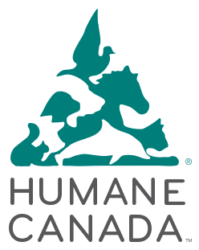Humane Canada has been calling on the government to amend the animal cruelty sections of the Criminal Code of Canada for more than 25 years. In 1999, the government launched a consultation process to gather input on what changes were needed to the animal cruelty provisions, which were originally enacted in 1892. In December 1999, then Justice Minister Anne McLellan tabled Bill C-17 in the House of Commons.
Bill C-17 died shortly after it was introduced due to an election being called early in 2000. Over the next several years, the Liberal government repeatedly brought the bill forward, but it repeatedly died due to prorogation of Parliament. The bill was named Bill C-15, C-15B, C-10, C-10B, C-22 and C-50. In 2003, Bill C-10B came extremely close to passing and was supported by all parties in the House, but the Senate blocked its passage.
Once the Conservative Party was in power, Member of Parliament Mark Holland brought forward a private member’s bill in October 2006 that was virtually identical to Bill C-50. Mr. Holland retabled his bill repeatedly as it died with prorogation. In addition, the NDP tabled its own bill, C-558, in June 2008.
In February 2005, Liberal Senator John Bryden from New Brunswick, tabled Bill S-24. This bill took the entire penalties section from the Liberal government bill, but made no changes to the offences. Humane Canada and other animal protection groups strongly opposed this bill. So did the Canadian public – a petition with almost 112,000 signatures was tabled in the House of Commons in 2007 opposing Senator Bryden’s bill. The introduction of this bill changed things dramatically, as most industry groups supported the Senator’s bill. This bill also fell victim to parliamentary prorogation three times, but Senator Bryden retabled it as Bill S-203 and then S-213. It ultimately passed through the Senate and the House and was enacted in June 2008.
Since 2008, Members of Parliament have made several more attempts to pass Criminal Code of Canada amendments. On September 19, 2011, Liberal MP Hedy Fry (Vancouver Centre) introduced Bills C-274 and C-277, which would have consolidated animal cruelty offences, created a new section in the Criminal Code for animal cruelty offences and increased the maximum penalties for animal abuse. Unfortunately, both bills died before becoming law.
On April 9, 2014, the NDP MP Isabelle Morin (Notre-Dame-de-Grâce – Lachine) took up the gauntlet again by introducing Bill C-592, which would have provided a better definition of “animal”, defined intentions and acts of cruelty and set higher penalties for those found guilty. C-592 reached second reading but did not become law.
Soon after, on June 9 2014, Liberal MP Irwin Cotler (Mount Royal) introduced Bill C-610, which would have created a new offence for the inadequate and negligent care of animals. The bill would have established it as an offence to negligently cause unnecessary pain, suffering or injury to an animal or bird. It would have become an offence to willfully or recklessly abandon an animal or fail to provide suitable and adequate food, water, air, shelter and care. It would have also punished those who negligently injure an animal or bird while it is being conveyed. It did not become law.
On February 26, 2016, Liberal Member of Parliament Nathaniel Erskine-Smith (Beaches-East York) introduced Private Member’s Bill C-246, The Modernizing Animal Protections Act. This bill aims to close the loopholes in the current animal cruelty provisions. More often than not, it is these loopholes that allow chronic hoarders, repeat abusers, puppy mill operators and dog fighting perpetrators to get off with a slap on the wrist.
The heart of it – where Humane Canada saw real potential for change – was the proposed creation of a new offence for individuals who cause unnecessary pain, suffering or injury to an animal through gross negligence of the animal’s welfare. The bill also promised to close loopholes related to animal fighting by making it illegal to train, breed or convey animals for the purpose of fighting, as well as making it illegal to profit from dog fighting.
Sadly, on October 6, 2016, the Bill was defeated by a wide margin during second reading in the House of Commons. No new Criminal Code of Canada amendments for animals have been introduced since that time.
In October 2018, using Humane Canada’s recommended language, the Minister of Justice introduced Bill C-84, which would broaden and strengthen Canada’s bestiality and animal fighting laws.
Bill C-84 received Royal Assent on June 21, 2019.
Over the past 20 years, there have been multiple attempts at ushering in changes to the Criminal Code of Canada, but many have failed. In fact, the animal cruelty sections of the Criminal Code have remained largely unchanged since 1892.
Want to see stronger laws and penalties for animal abuse in Canada. Support our work!

